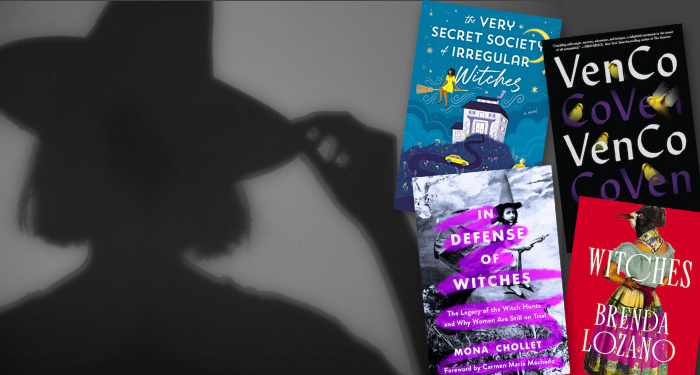March is Women’s History Month, and I couldn’t stop thinking about witches this year. Okay, so the connection between witches and a month celebrating women may not be readily apparent. I get that. But here’s the deal: witches are making a bigtime comeback, y’all.
It’s true that historically the label “witch” has been used to disparage or even criminalize women. Actually, it’s that trend that makes contemporary witchiness so spellbinding. The connections between witches and feminism have always been there.
For example, last year Scotland’s government issued an apology for its history of witch trials on International Women’s Day, acknowledging the role of misogyny in these events. Similarly, academic studies like Edward Dutton’s Witches, Feminism, and the Fall of the West and Kristin J. Sollee’s Witches, Sluts, Feminists: Conjuring the Sex Positive explicitly link the figure of the witch to feminism.
Whether it’s evident in the widespread popularity of oracle decks or the resurgence of feminism, witches are experiencing a day in the sun. Happily for all of us, literary witches are back in full force. For this Women’s History Month, I offer you this list of books that feature witches in empowering and awesome ways.
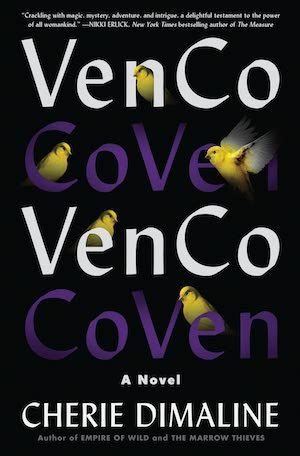
VenCo by Cherie Dimaline
I can’t even begin to do justice to this enchanting (and, at times, hilarious) read. It starts with Lucky and her grandmother Stella facing eviction, and spirals in the best of ways into a fast-paced series of events after Lucky finds out she’s a witch. There’s a mysterious discovery, a cross-country scavenger hunt for a lost witch, a quirky set of amazing women, and a race against the clock. Oh, and did I mention the ruthless witch hunter? Lucky and Stella (I love me a spry grandma character!) and their newfound coven form a powerful community — it’s hard to say whether the characters or the plot is more enjoyable. VenCo has so much going on, and so much going for it. You won’t regret picking this one up (unless it’s to lament the lack of sleep you got because you couldn’t put it down).
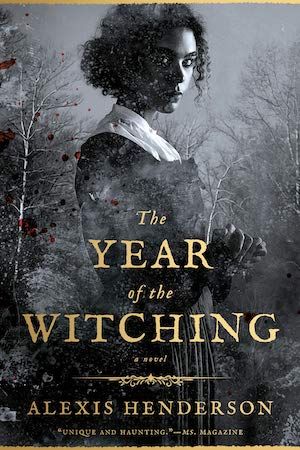
The Year of the Witching by Alexis Henderson
Gothic horror is a really great genre for a witch story. There are some familiar trappings of witch tales in this book, like a dark and eerie forest and an oppressive religious system, which creates a quick and effective atmosphere for this dark fantasy’s engagement with witchy women. Protagonist Immanuelle Moore is a young biracial orphan struggling to stay afloat in the repressively religious and racist community of Bethel. With a mother who was accused of witchcraft and a father who was burned at the stake, she pretty much has no chance of fitting in…but it’s okay, because Bethel is one creepy place with a whole lotta things wrong with it. Suffice it to say this book isn’t for the faint of heart, but it’s rife with feminist undertones in the best of ways.
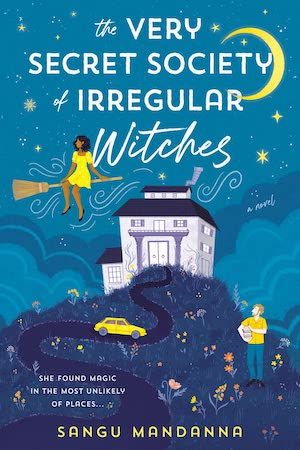
The Very Secret Society of Irregular Witches by Sangu Mandanna
With a protagonist named Mika Moon, I knew this was going to be a charming read from the get go. And I wasn’t wrong! Mika’s lonely, and being a witch doesn’t help, since she can’t draw too much attention to her magic. But when her social media habits lead to a very unusual invitation to teach young witches at a place called Nowhere House, Mika’s world expands. This is a super fun read! It’s a really sweet and playful story (with a sexy librarian — did I mention him?) that will make your heart smile.
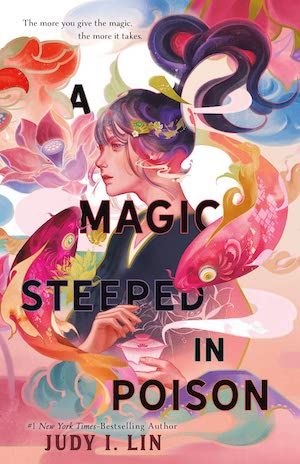
A Magic Steeped in Poison by Judy I. Lin
I have a confession to make: A Magic Steeped in Poison isn’t specifically a novel about witches. But I couldn’t help myself — the parallels between Lin’s shennong-shi (magical brewers of tea…but it’s so much more than that) and witches are just too strong. True, shennong-shi can be any gender, but in this fantasy universe, their art is set up in opposition to conventional medicine and they are often stigmatized and branded as witches. I couldn’t help but think of real-world histories of, for instance, midwifery vs. conventional medicine, with all the attendant sexism of the language of “legitimacy”. Regardless, this book is the first of a duology that is at once bewitching and intriguing. It’s a really unique fantasy world that has a lot to say about power, privilege, and magic.
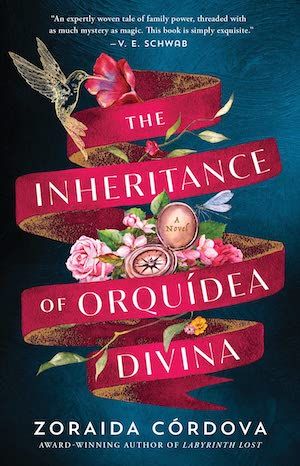
The Inheritance of Orquídea Divina by Zoraida Córdova
The premise: the aging Orquídea Divina sends out invitations to her funeral, calling her descendants back to her magical homestead. The twist: instead of dying in a normal way, she turns into a tree. The aftermath: Orquídea’s family has to mend their rifts, rediscover their roots, and — hardest of all — work together in order to save themselves. The prose is lively and fresh in this book, and the characters are beautifully irreverent and strong willed. This book was especially interesting to me because it didn’t give answers where I thought it would, and the answers it gave weren’t always the ones I expected. Bonus: if you love this book, you’ll be thrilled to know she has a witchy YA series called Brooklyn Bruja that you can pick up next!
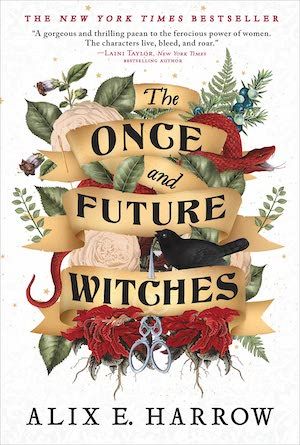
The Once and Future Witches by Alix E. Harrow
How much convincing do you need beyond a tale set in an alternate late 19th century U.S. America where women’s right to vote is entwined with the forbidden power of witchy women? I could probably stop right there, but I want to tell you more. This book is a ridiculously fun read. It’s smart, features delightful characters, and surprised me at several turns. Harrow leans right into the bonds that connect sexism, witchcraft, and women’s rights as her characters discover how powerful they really are.
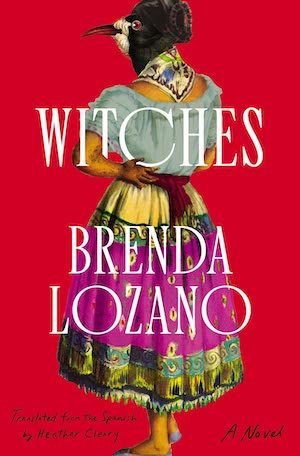
Witches by Brenda Lozano
Witches is about so much more than, well, witches. It’s about gendered violence, casual misogyny, and the power of women. With one character who’s a journalist and another who’s a traditional healer, you know this narrative is going to go deep. The story that emerges between the lines of their alternating narration is just as rich as the stories they tell, and their own lives become increasingly entangled. In some ways, that’s unsurprising, given that the plot device that brought them together was a murder. But in other ways, it’s a narrative strategy that enables Lozano to delve into the larger social issues that lie at the heart of the book. I know sometimes people shy away from books that get too caught up in real world concerns, but this book is worth it on so many levels.
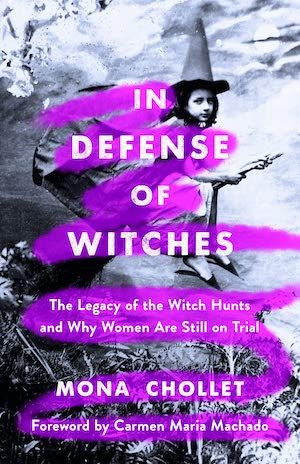
In Defense of Witches: The Legacy of the Witch Hunts and Why Women Are Still on Trial by Mona Chollet
If you’re looking for a nonfictional engagement with witches, look no further. In Defense of Witches takes a deep dive into the links between feminism and witch hunts in Western society. Exploring various archetypal figures who were targeted by historical witch hunts, Mona Chollet makes several compelling (and troubling) connections between these histories and contemporary attitudes toward women deemed too independent, too outspoken, too fringe for the dominant culture. It’s an informative and thought-provoking read that will have you considering misogyny from new angles. As an aside, the fact that this book contains a foreword by Carmen Maria Machado is indicative of just how powerful a read it is!
